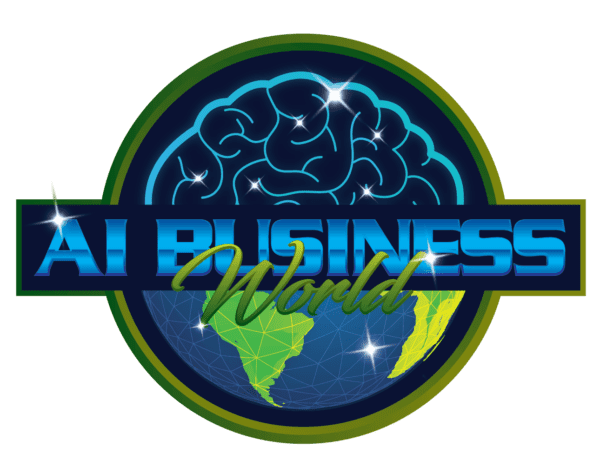AI Tips for Business Guide (2024)

Table of Contents
In this article we will cover AI tips for business to help you streamline and automate tasks. In an age where technology reigns supreme, artificial intelligence has emerged as a game-changer, revolutionizing the way we conduct business.
Whether you’re a seasoned entrepreneur or a budding startup, understanding the intricacies of AI is no longer a luxury, but a necessity for staying ahead in the competitive market.
From automated customer service to predictive analytics, AI is empowering industries of all kinds to streamline operations, enhance decision-making, and unlock untapped potential.
Implementing AI (Artificial Intelligence) in Business
Integrating AI into business operations has become increasingly crucial in today’s competitive landscape. One of the key benefits of AI is its ability to automate repetitive tasks, allowing employees to focus on more strategic and creative work. For example, AI-powered chatbots can handle customer inquiries, freeing up human agents to tackle complex issues that require empathy and critical thinking.
Furthermore, AI can analyze vast amounts of data at lightning speed, providing valuable insights for decision making. By leveraging machine learning algorithms, businesses can identify patterns, trends, and correlations that humans may overlook.
This data-driven approach enables companies to optimize their processes, improve efficiency, and make data-backed decisions.
Moreover, AI can enhance the accuracy and precision of tasks that require complex calculations or predictions.
For instance, in the finance industry, AI algorithms can analyze market trends and make real-time predictions, enabling traders to make informed investment decisions. This not only reduces the risk of errors but also increases profitability.
AI Tips for Choosing the Right Solution
With a plethora of AI solutions available, selecting the right one for your business can be a daunting task. It is essential to consider factors such as the specific needs of your organization, the scalability of the solution, and the expertise required to implement and maintain it.
When choosing an AI solution, it is crucial to ensure that it aligns with your business objectives. For example, if you aim to enhance customer experience, a chatbot with natural language processing capabilities would be a suitable choice. On the other hand, if you want to optimize your supply chain, an AI-powered demand forecasting system could be the right fit.
Additionally, scalability is vital to accommodate future growth and changing business requirements. Another AI tip: It is important to choose an AI solution that can handle increasing data volumes and adapt to evolving technologies. Scalability ensures that your AI system remains effective and efficient as your business expands.
Lastly, consider the expertise required to implement and maintain the AI solution. It is crucial to assess whether your team has the necessary skills or if you need to partner with external experts. Choosing a solution that aligns with your team’s capabilities will streamline the implementation process and ensure a smooth transition.
AI Tips to think about: There is some wonderful AI software for different business needs and even free software such as ChatGPT. Make sure to research to find the right software solution for your business or personal use.
AI Tips for Customer Service
Customer service is an area where AI has made significant strides, transforming the way businesses interact with their customers. AI-powered chatbots, for instance, can provide instant responses to customer inquiries, 24/7. AI chatbots use natural language processing to understand and respond to customers accurately.
AI chatbots not only offer quick and efficient customer support but also provide personalized experiences. By analyzing customer data, such as purchase history and preferences, chatbots can tailor their responses and recommendations to individual customers. This level of personalization enhances customer satisfaction and builds brand loyalty.
Moreover, AI can assist human agents by providing them with real-time information and suggestions during customer interactions. For example, AI systems can analyze customer sentiment based on their tone of voice or text, enabling agents to empathize and provide appropriate solutions. This combination of AI and human expertise results in superior customer service and improved customer retention.

AI Tips for Content Creation
AI-driven content creation has become an invaluable tool for streamlining and enhancing the content generation process.
One essential AI tip is to leverage natural language processing (NLP) algorithms for automated content creation. NLP enables AI systems to understand, interpret, and generate human-like text, making it a powerful tool for generating blog posts, articles, and other written content. This not only saves time for content creators but also ensures consistent quality and tone across various pieces.
Additionally, using AI for content creation involves harnessing machine learning algorithms for content optimization. By analyzing user engagement data, AI can identify patterns and preferences, allowing content creators to tailor their material for maximum impact.
This includes optimizing headlines, choosing relevant keywords, and even adapting writing styles to better resonate with target audiences. This data-driven approach ensures that content is not only well-crafted but also strategically aligned with the interests and needs of the intended audience.
In summary, an AI tip for content creation is to leverage NLP for automated writing and employing machine learning for content optimization. By incorporating these technologies, content creators can boost efficiency, maintain consistency, and strategically tailor their material to engage and resonate with their audience, ultimately driving better results in the competitive landscape of digital content.
AI Website Building Software
AI website generation software has emerged as a transformative tool in the field of web development, revolutionizing the way websites are designed and created. This innovative software utilizes artificial intelligence algorithms to automate and expedite the website building process.
One of its key advantages lies in its ability to analyze user preferences, industry trends, and design principles to generate visually appealing and user-friendly websites. By streamlining tasks such as layout design, content creation, and responsiveness optimization, AI website generation software enables developers and businesses to create professional and aesthetically pleasing websites with greater speed and efficiency.
This not only reduces the complexity of traditional web development but also allows for the rapid adaptation of design elements to meet evolving user expectations and technological advancements. As a result, AI website generation software is at the forefront of ushering in a new era of accessible, adaptive, and visually stunning web experiences.
AI Graphic Design Software
AI graphic design software has revolutionized the creative landscape by offering powerful tools that leverage artificial intelligence to streamline and enhance the graphic design process.
These innovative applications use machine learning algorithms to analyze design trends, user preferences, and industry standards, enabling designers to produce visually stunning and on-trend graphics. AI graphic design software often includes features like automated image generation, intelligent layout suggestions, and advanced image recognition, allowing designers to focus on the conceptual aspects of their work while the software handles repetitive tasks.
By combining the creativity of human designers with the efficiency of AI, these tools empower users to produce professional-grade designs quickly and with a level of precision that was once time-consuming to achieve. As a result, AI graphic design software stands at the forefront of transforming how visual content is conceptualized and created, making high-quality design accessible to a broader range of individuals and businesses.
AI Video Creation Software
AI video creation software has emerged as a game-changer in the realm of content production, offering a seamless blend of automation and creativity.
By harnessing the power of artificial intelligence, these tools enable users to effortlessly generate professional-quality videos with minimal manual effort. Equipped with advanced algorithms, AI video creation software can analyze scripts, select appropriate visuals, and even synthesize realistic voiceovers, expediting the entire video production process.
This technology not only saves time and resources but also enhances the accessibility of video creation for individuals and businesses without extensive production resources. From assembling dynamic clips to optimizing transitions and suggesting engaging visual elements, AI video creation software empowers users to transform ideas into compelling visual narratives, marking a significant evolution in the landscape of video content creation.
AI Writing Software
AI writing software represents a significant leap forward in content creation, offering a versatile and efficient solution for generating high-quality written material. Powered by advanced natural language processing (NLP) algorithms, AI writing software can comprehend and replicate human-like language, making it an invaluable tool for producing coherent and contextually relevant content.
From creating blog posts and articles to crafting marketing copy and technical documentation, AI writing software streamlines the writing process by suggesting improvements, correcting grammar, and even generating entirely new text based on user prompts. Its ability to adapt writing styles and tones to specific requirements ensures versatility, while the capacity to analyze vast amounts of data aids in generating content that resonates with target audiences.
As AI writing software continues to evolve, it not only enhances productivity for writers but also contributes to the creation of engaging, personalized, and polished content across various industries and applications.
AI Tips for Marketing
In the realm of marketing, AI has revolutionized how businesses reach and engage with their target audience. AI-powered algorithms can analyze vast amounts of customer data, such as browsing history and demographic information, to create highly targeted and personalized marketing campaigns.
AI can automate the process of segmenting customers based on their preferences and behaviors, allowing businesses to deliver tailored content and offers. This level of personalization increases the likelihood of conversions and drives customer engagement.
Furthermore, AI can optimize marketing campaigns by continuously analyzing and adjusting strategies based on real-time data. For instance, AI algorithms can analyze the performance of different advertisements and channels, automatically allocating resources to the most effective ones. This data-driven approach not only maximizes the return on investment but also saves time and resources.
Moreover, AI can assist in content creation by generating personalized product recommendations, writing compelling ad copy, or even creating entire articles. This automation streamlines the marketing process, freeing up marketers to focus on strategy and creativity.
AI Tips for Operations
AI has the potential to optimize various operational aspects of a business, leading to increased efficiency and cost savings. For instance, in manufacturing, AI-powered systems can monitor equipment in real-time, predicting and preventing breakdowns before they occur. This predictive maintenance approach minimizes downtime, reduces maintenance costs, and ensures smooth operations.
AI can also enhance supply chain management by optimizing inventory levels, predicting demand, and identifying potential bottlenecks. By analyzing historical data and external factors, AI algorithms can help businesses make informed decisions regarding procurement, production, and distribution. This results in reduced inventory holding costs, improved order fulfillment, and enhanced customer satisfaction.
Furthermore, AI can improve quality control by analyzing data from sensors or cameras to detect defects or anomalies in the production process. This real-time monitoring enables businesses to identify issues early on, preventing defective products from reaching customers. This not only saves costs but also protects the brand reputation.
AI Tips for Decision Making
AI has the power to revolutionize decision-making processes by providing data-driven insights and predictions. By analyzing vast amounts of data, AI algorithms can identify patterns, correlations, and trends that humans may overlook. This enables businesses to make informed decisions based on accurate and up-to-date information.
AI can assist in strategic decision making by analyzing competitor data, market trends and customers. For example, AI algorithms can analyze customer feedback and sentiment to identify areas for improvement or new product opportunities. This data-driven approach minimizes the risk of biased decisions and increases the likelihood of success.
Moreover, AI can optimize operational decision making by analyzing real-time data and making recommendations. For instance, in the transportation industry, AI algorithms can analyze traffic patterns and weather conditions to optimize route planning, resulting in shorter delivery times and reduced fuel consumption.
AI can also aid in financial decision making by analyzing market data and making real-time predictions. For example, AI algorithms can assess market trends and make investment recommendations, enabling businesses to make informed decisions regarding their financial portfolios.
Challenges and Risks of AI in Business
While AI offers numerous benefits, it also comes with its fair share of challenges and risks. One of the major concerns is the ethical use of AI. As AI systems become increasingly autonomous, ensuring that they align with ethical and legal guidelines becomes crucial. Businesses must prioritize transparency, fairness, and accountability when developing and deploying AI solutions.
Data privacy and security is another significant challenge. AI systems rely on vast amounts of data, often including sensitive customer information. Protecting this data from unauthorized access or breaches is of utmost importance. Businesses must implement robust security measures and comply with privacy regulations to mitigate these risks.
Furthermore, there is a concern regarding the impact of AI on the workforce. While AI can automate repetitive tasks, it also raises concerns about job displacement. Businesses must proactively address these concerns by reskilling and upskilling employees to work alongside AI systems. By focusing on collaboration between humans and AI, businesses can harness the full potential of this technology.
Things to Consider before Rolling out AI Solutions
Using artificial intelligence effectively can bring numerous benefits, but it’s important to approach it thoughtfully and ethically. Here are some AI tips:
Understand Your Goals: Clearly define your objectives and understand what you want to achieve with AI. Whether it’s improving efficiency, making predictions, or automating tasks, a clear goal will guide your AI implementation.
Data Quality Matters: AI models heavily rely on data. Ensure your data is accurate, relevant, and representative of the problem you’re trying to solve. Garbage in, garbage out—high-quality data leads to more accurate and reliable AI models.
Ethical Considerations: Be mindful of ethical considerations, such as bias in training data, privacy concerns, and potential societal impact. Regularly assess the ethical implications of your AI applications and take steps to mitigate biases.
Transparency and Explainability: Be transparent as possible when building AI systems. Users, stakeholders, and even developers should have a clear understanding of how the AI makes decisions. This is especially crucial for critical applications like healthcare or finance.
Start Small, Scale Gradually: Begin with small, manageable AI projects and gradually scale up as you gain experience. This allows your team to learn and adapt without overwhelming resources.
Choose the Right Algorithm: Select the appropriate algorithm for your specific problem. Different algorithms have strengths and weaknesses, and the choice of algorithm can significantly impact the performance of your AI system.
Continuous Learning and Improvement: AI models can benefit from continuous learning. Regularly update and retrain your models as new data becomes available to keep them accurate and relevant.
Human-in-the-Loop: Consider incorporating a human-in-the-loop approach, especially for critical decision-making processes. This involves human oversight to ensure that AI decisions align with human values and are free from unintended biases.
User Feedback: Collect feedback from end-users and stakeholders. This information is invaluable for improving your AI applications and understanding how they impact users.
Security Measures: Implement robust security measures to protect your AI systems from potential attacks. This includes securing data, monitoring for unusual activities, and staying informed about the latest security threats in the AI space.
Legal Compliance: Ensure that your AI applications comply with relevant laws and regulations. This includes data protection laws, intellectual property rights, and any industry-specific regulations that may apply.
Collaborate and Stay Informed: Collaborate with the AI community for AI tips, stay informed about the latest developments, and attend conferences or workshops. The field of AI is rapidly evolving, and staying updated will help you make informed decisions.
By following these AI tips, you can leverage AI effectively while minimizing potential risks and ethical concerns.
Conclusion
AI has transformed the business landscape, offering numerous benefits across various sectors. From automating tasks and providing valuable insights to enhancing customer experiences and improving decision making, AI has become an indispensable tool for businesses striving for success in the digital age.
Another AI tip to consider is to launch a profitable AI business.
However, it is essential to carefully choose the right AI solution, address the challenges and risks, and prioritize ethical considerations. By embracing AI and leveraging its capabilities, businesses can gain a competitive edge and unlock new opportunities for growth and innovation.
AI Writing Software
AI Graphic Design Software
AI Website Building Software
AI Video Software

